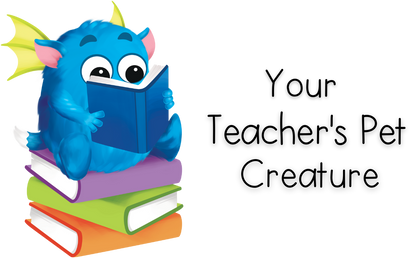Your Cart is Empty
Learning Topics
Best Sellers

7 Easy To Implement Coping Strategies To Help Your Students
by Jonathon Denholm May 23, 2022 3 min read
Helping Students Grow
As teachers, a large part of our job is helping our students to learn, grow, and develop emotionally. A vast amount of socio-emotional learning involves the development of appropriate, effective strategies for coping. Identifying which strategies work is one of the absolute most important aspects of stress management for our students. These skills play a vital role in ensuring that students’ psychological needs are met. Social sciences such as psychology and sociology have taught us that students need to have their psychological needs met before they can be successful academically.
The Pandemic & a Universal Need
It is no secret that the pandemic has dealt a difficult hand to children and adults alike in terms of mental health. Mental health management is something that is often neglected when it comes to child health (and adult health, for that matter). It is critical for people of all ages. One of the best ways to approach the basics of mental health for students is to help them incorporate these strategies into their daily lives, whenever trouble might arise.
Approaching Mental Health & Coping Strategies for Kids
Coping strategies lead to improved coping skills. The development of these skills isn’t something that happens overnight. It happens gradually, over a long period of time and through dedication. It should be noted that the way in which we teach coping strategies to a teenager looks a bit different from the way you would teach them to students who are younger. Coping involves harnessing both cognitive and behavioural processes to effectively manage and acknowledge thoughts, emotions, and mental states. We can actually help our students to create their own coping skills toolbox from which they can choose whenever they need to. When students develop these skills, they become much more well adjusted and able to tackle whatever life may throw at them.
Coping Strategies for Students
Some excellent strategies are included below. When children are able to learn effective strategies for coping early on in life, they are far more able to handle it when life gets messy. When kids know which strategies work best for them, and they are able to utilise those strategies whenever necessary, they often manage stress, develop character and perseverance, and manage the highs and lows of life so much better.
We have to prepare our children to manage their stress when stressful situations arise. We have to normalise stress, but also normalise the ability to handle those stressful situations. These are all skills that our students can learn to help them manage their stress and big emotions when things get difficult.
Problem-Focused Coping Strategies
Problem-focused strategies include those that involve identification, empowerment, and ownership. These strategies specifically allow those utilising them to look at the problem and face it head on, no matter how challenging that might seem. These skills are essential for situations where there is potential for actionable steps to lead to change, and ultimately, for problems to be solved.
7 Strategies to Consider
- Deep Breathing- self-soothing techniques
- Meditation & Mindfulness- self soothing techniques
- Distraction- healthy methods of escapism
- Productive Conversation
- Acting Opposite
- Journaling
- Emotion Identification
Simple, Practical Solutions
Some strategies can be incredibly simple. Since a large part of coping deals with the psychological and emotional states of our students, small, calming acts can be effective ways for us, as teachers, to help them. Something I have seen work countless times is offering students a calming lotion. The small act of rubbing a scented lotion into their hands can be enough to ground a student.
Resources for Teaching Coping Strategies
Ironically, teaching these vital strategies can tend to feel a bit overwhelming. There are so many different aspects of coping to cover, and there isn’t one magic strategy that works great for everyone. Luckily, Your Teacher’s Pet Creature has a few very helpful coping skills resources that you may want to consider integrating into your classroom. This is a bundle with a book on emotional regulation that comes along with a cute little pet that can cheer on your class as they learn to develop helpful coping skills.


